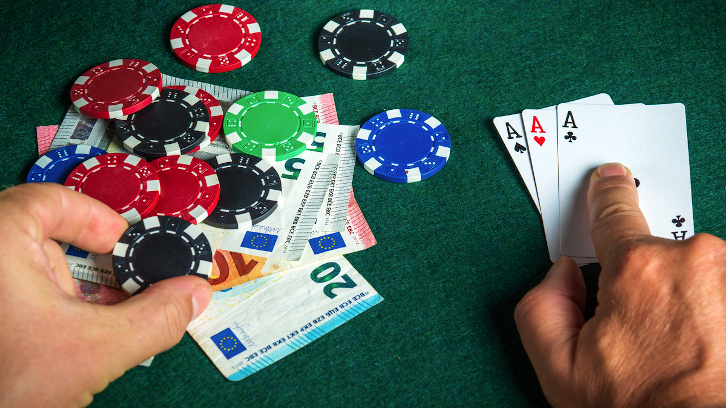The complex dual pathology interaction between gambling disorder and ADHD

Pathological gambling, a behavioural addiction, is often associated with attention deficit hyperactivity disorder (ADHD). A study in dual pathology by the Pathological Gambling Unit of the Bellvitge University Hospital and the UAB has found that 20% of patients have severe ADHD symptoms. This is related to a clinical profile characterised by greater severity in addictive behaviours and relapses, in addition to psychopathological symptoms and impulsivity. The researchers highlight the need for specific interventions to improve ADHD symptoms and advocate for comprehensive approaches in treatment teams.
The term “dual pathology” is applied to clinical conditions characterized by the joint presence of an addictive disorder (associated or not with substance use) alongside a mental disorder in one same individual. This comorbidity is common in clinical contexts, where it is estimated that more than 50% of patients with related addiction problems suffer from other psychiatric syndromes. The factors that predispose to dual pathology are multiple and include biological variables (such as genetic vulnerability), psychological (personality traits or exposure to stressful situations) and sociocultural (unemployment or social exclusion). This type of comorbidity also makes it difficult to reach an accurate diagnosis, which can in turn interfere with treatments, increasing difficulties in adherence and an increase in the likelihood of dropouts and relapses.
Pathological gambling is a behavioral addiction characterized by a recurring gambling pattern that causes significant functional impairment, and is usually associated with multiple concurrent psychopathological symptoms that influence aggravating addictive behaviors and lead to chronicity of psychological distress. One frequent dual pathology in specialized addiction treatment centers is gambling disorder comorbid with attention deficit hyperactivity disorder, commonly known as ADHD. ADHD is a neurodevelopmental syndrome defined by a set of inattention and hyperactivity symptoms leading to significant alterations in all the individuals’ functional areas (especially in the socio-occupational spheres). The concurrence of gambling disorder with ADHD affects the neurobiological processes involved in the motivation-reward system, and in this contributes to serious difficulties in the inhibitory control, in decision-making under uncertainty, and the perception of urgency to engage in risky behaviors.
Our study conducted at the Pathological Gambling Unit of the University Hospital of Bellvitge (coordinated by la Dra. Susana Jiménez-Múrcia), has evaluated how ADHD symptoms influence the clinical status and therapeutic outcomes of patients seeking treatment for gambling. In this research we estimated a 20% prevalence of severe ADHD symptoms in the full sample of patients seen during the recruitment period. In addition, we observed that patients reporting ADHD presented at baseline (before the intervention) a clinical profile characterized by greater severity of addictive behaviors, greater number and severity of other concurrent psychopathological symptoms, greater impulsivity and more maladaptive personality traits. During the intervention, which was carried out with cognitive behavioral therapy, no differences in the risk of treatment dropout were recorded. However, we did observe that patients with relapses presented more severe symptoms of inattention, and that more dysfunctional levels of ADHD were associated with higher bets during relapse episodes.
Our research concludes that interventions in patients with gambling disorder who also present ADHD symptoms should incorporate specific strategies for emotional regulation, stimulus control, impulsive behavior control, and cognitive restructuring, in order to attenuate symptoms of inattention (both those that present in isolation and those that confluence with hyperactivity-impulsivity).
Therefore, we believe that it would be expected that the improvement of these symptoms specifically linked to ADHD would have an influence in reducing both the frequency and severity of relapses in patients with dual pathology. In addition, it is also necessary to raise awareness of the need for multidisciplinary treatment teams to develop comprehensive models, in which the patient is cared for by a single team that simultaneously addresses the problems related to the addictive disorder and the comorbid mental pathology.
Roser Granero
Departamento de Psicobiología y Metodología
Universitat Autònoma de Barcelona
References
Vintró-Alcaraz C, Mestre-Bach G, Granero R, Gómez-Peña M, Moragas L, Fernández-Aranda F, Potenza M N, Jiménez-Murcia S. (2024). Do attention-deficit/hyperactivity symptoms influence treatment outcome in gambling disorder?. Comprehensive Psychiatry, 128:152433. doi: 10.1016/j.comppsych.2023.152433

